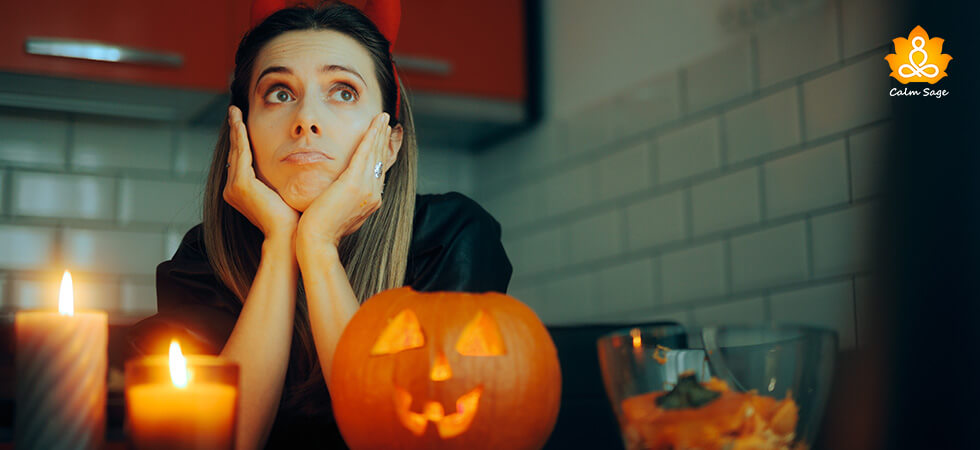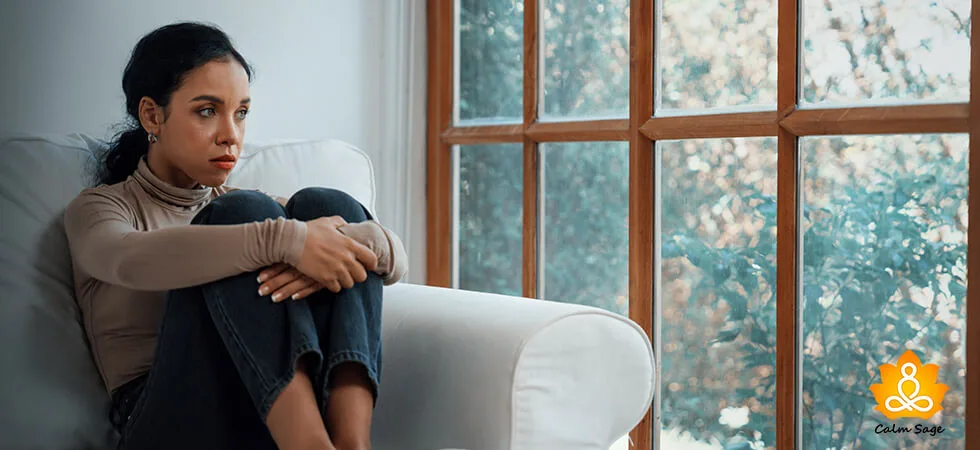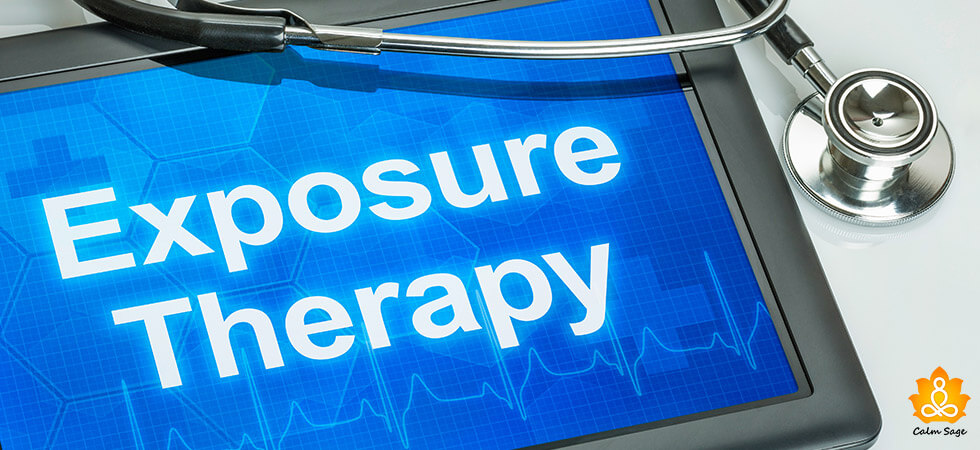Can Halloween Trigger PTSD? What to Expect and How to Prepare

Spooky season is upon us and I’m ready to celebrate Halloween with my friends and family. Halloween has always been an intriguing festival to me. In the culture I grew up in, we had a slightly different way of remembering the dead so to me, Halloween was new. Now, I can say with all my heart that Halloween is a fun-filled holiday that has found its way into my home and heart.
Others like me enjoy the Halloween spirit, but there are some to whom the spooky season can be the time of the year when their trauma is triggered. Halloween is associated with various themes that might seem normal to you and me, but to some, can be triggering, especially trauma survivors and those who live with PTSD – post-traumatic stress disorder.
As we celebrate Halloween, we don’t cut back on the themes or the décor. Loud noises, scary costumes, and depictions of violence and death are just some of the most common themes related to Halloween.
If you or your loved one has PTSD, then it’s important to be aware of potential trauma triggers that Halloween may bring forth. Knowing what Halloween theme triggers your trauma can help you manage them well and that’s what we’re exploring in this article.
Keep reading to learn more about Halloween and trauma triggers, how Halloween can be triggering for PTSD and trauma, and how you can deal with Halloween trauma and stay safe this spooky season.
Halloween And PTSD: Can Halloween Trigger PTSD?
Halloween might be a fun-filled holiday where you dress up as someone else and leave your current worries behind, but this holiday can be a triggering time for trauma survivors and those with PTSD. How? Let’s take a look;
1. Scary Costumes and Decor
Halloween costumes and decorations often depict violence, gore, or death. While these match with the festival theme, they can be particularly triggering for people who have experienced traumatic events such as war, violence, or accidents in their lives.
Even costumes that are not explicitly violent can be triggering if they resemble something that someone has experienced in real life.
For example, if someone has been abused as a child or as an adult, then scars or marks of abuse as parts of the costume can be triggering.
2. Loud Noises
More often than not, Halloween is accompanied by fireworks, haunted houses, and other spooky activities that can be loud and overwhelming, especially for those who have experienced trauma in their lives. Loud noises, specifically, can trigger the fight-or-flight response, which can cause symptoms such as panic attacks, anxiety, and flashbacks.
3. Unexpected Physical Contact
Trick-or-treaters or even friends and family who come along to party might touch or surprise someone with PTSD. Any unexpected contact can also trigger the stress response. How? Well, people living with PTSD are often hyper aware of their surroundings and are constantly on alert for any potential threats. Unexpected physical contact can be a threat to them and can cause panic attacks or other PTSD symptoms.
4. Dark or Crowded Places
When you think of Halloween, you think of costume parties, fêtes, and other social events. More often than not, these events happen in dark or crowded places, which can be disorienting and triggering for PTSD and people who live with anxiety. Dark and crowded places can make it hard for people with PTSD and trauma to feel safe and in control, which can also trigger panic responses. Sometimes, dark places can also cause vivid flashbacks.
5. Loss or Death
Halloween is often associated with themes of death and the afterlife. These themes can also be triggering for those who have experienced a traumatic loss or death of a loved one. Halloween decorations and activities can evoke feelings and images of death that can be upsetting for people who are grieving.
Other than these common Halloween trauma triggers, other themes related to the spooky festival can be triggering for people with anxiety, trauma, and PTSD. For example;
- The smell of blood or smoke
- Certain songs, music, or movies
- Gory decorations
- Jump scares or practical jokes, etc.
It’s important to be aware of your trauma triggers and take steps to either avoid them or manage them effectively if you can’t avoid them altogether.
How to Deal With Trauma Triggers This Halloween?
If you have PTSD or have experienced trauma in the past, then there are a few things you can do to deal with trauma triggers this Halloween;
1. Identify Your Trauma Triggers
First, see what triggers your trauma during Halloween. Is it a specific costume, theme, or decoration? Once you know what triggers your trauma, you can start to develop strategies to either avoid them or cope with them if you can’t avoid or eliminate them.
2. Set Boundaries
Know that it’s OK to say “NO” to Halloween activities and parties if you feel that your trauma might be triggered. You don’t have to participate in everything. Set boundaries for yourself and communicate to your loved ones about what feels safe to you and what doesn’t.
3. Figure Out Coping Strategies
If you are triggered during Halloween, then figure out a coping strategy. This might include taking deep breaths, practicing relaxation techniques, or even moving to a quiet place where you know you won’t be disturbed as you breathe through your trauma.
4. Talk to Your Loved Ones
Let your loved ones – friends and family – know your Halloween trauma triggers and how they can support you when your symptoms are triggered. Your loved ones can help you avoid trauma triggers or distract you when or if you get triggered.
5. Choose Safe Activities
If you choose to participate in Halloween activities and events, choose ones that feel safe for you. Choose to participate in activities that you know you’ll be comfortable with and your trauma won’t be triggered. Try to avoid activities that are more likely to be loud, dark, scary, or crowded.
6. Take Care of Yourself
Make sure you take care of yourself during the Halloween season. Get enough sleep, eat well-balanced meals, and exercise regularly. Halloween self-care can help you manage stress and anxiety, and even help cope with your trauma triggers.
7. Practice Grounding Techniques
If you begin to feel overwhelmed during Halloween, try grounding techniques to stay in the present moment. You can do this by bringing your attention to your senses with the 5-4-3-2-1 exercise or trying body scan meditation. You can also wash your face with cold water if you begin to feel panicked.
8. Get Professional Support
If you or your loved one is struggling to cope with Halloween trauma triggers, then know that you can reach out to a mental health professional for help and support. A therapist can help you understand your triggers and how you can cope with them effectively. Remember, you are not alone.

20% OFF on Your First Month on Online Therapy with Code CALMSAGE
Happy Halloween!
Halloween can be a fun and spooky festival for many, but it can also be triggering for PTSD and trauma survivors. Understanding Halloween trauma triggers and themes that can cause anxiety and panic during the spooky season can help you and your loved ones easily manage them.
With the right steps and support, you can have a safe, enjoyable, and a Spook-tacular Halloween experience!
I hope this article helped you understand how Halloween can be triggering for PTSD and trauma survivors. To have a safe and sane Halloween, try the above-mentioned tips or seek professional help or support.
What do you think about the article? Let me know in the comments box below.
Take Care and Have a Happy Halloween!




















